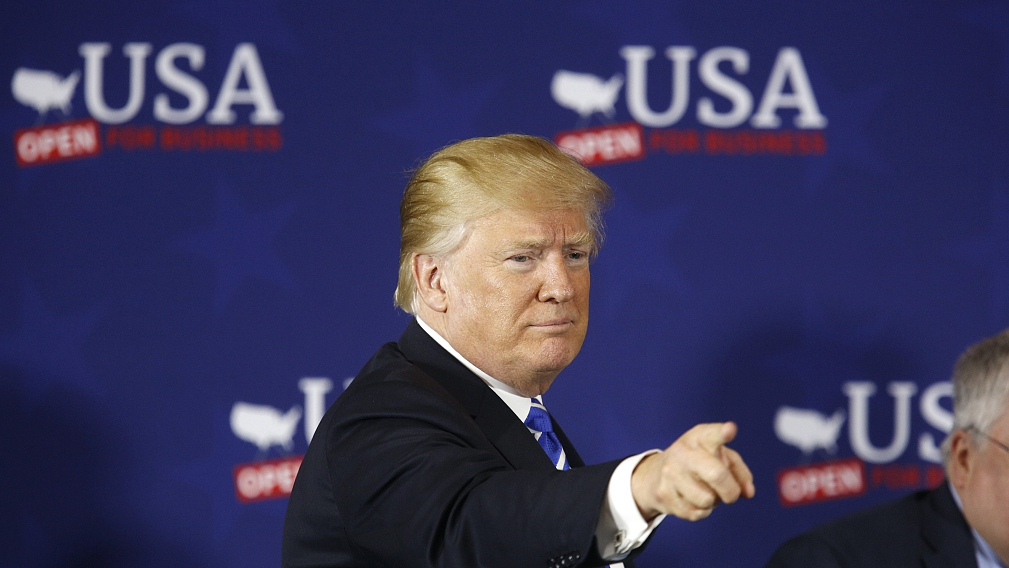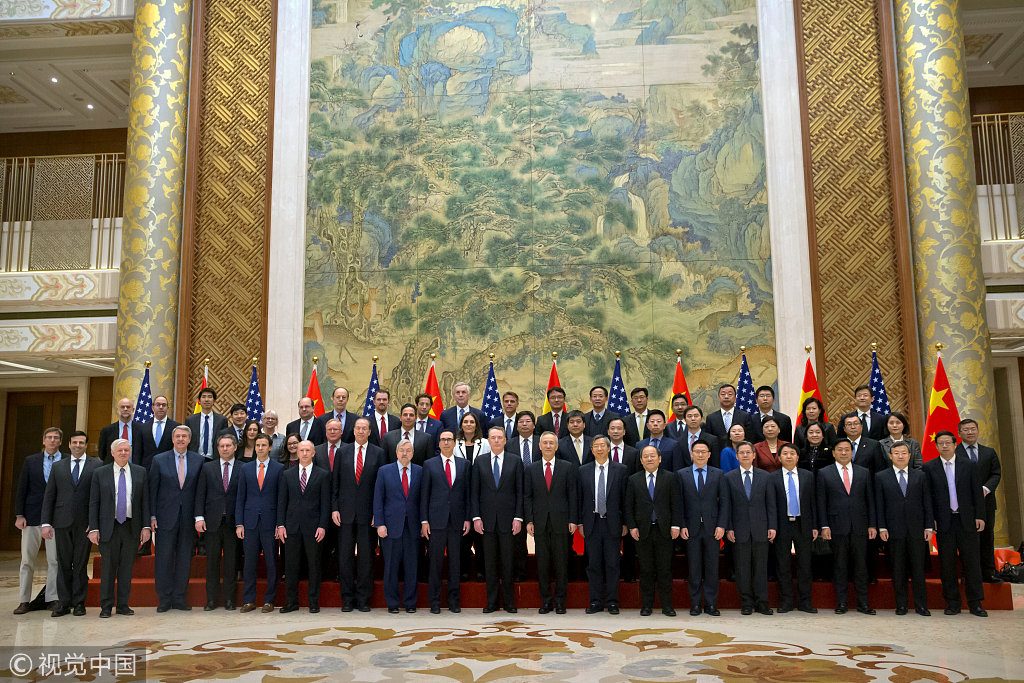
Opinion
12:23, 06-May-2019
Tariff U-turn is classic Trump
Tom Fowdy

Editor's note: Tom Fowdy is a British political and international relations analyst and a graduate of Durham and Oxford universities. He writes on topics pertaining to China, the DPRK, Britain and the U.S. The article reflects the author's opinion, and not necessarily the views of CGTN.
On Sunday afternoon, President Donald Trump of the United States tweeted abruptly that negotiations on trade with China were going “too slowly” and that “on Friday” outstanding tariffs on Chinese goods would be increased from 10 percent to 25 percent, a move the president had previously withheld. In the process, he shrugged off any concerns that the tariffs would hurt the consumer.
The move came as a big surprise as just days previously it was touted that a final agreement between Washington and Beijing was close, with a trade delegation having visited China and held successful talks. In the aftermath of the tweet, markets in the U.S. and overseas tanked, with economists sounding warnings that an escalated trade conflict would have severe ramifications for the global economy.
Just what exactly is going on? Audiences should have been more prepared for a textbook Trump move. It is his modus operandi to lean on the verge of an agreement, only to randomly pull away and then harden his stance against his opponent.
Whilst he is serious about making a deal with China, recent events have led the president to believe he has gained additional leverage and accordingly, he is making a surprise last-minute push to gain more concessions.
However, the impact this will have on talks is uncertain. China also wants to negotiate, but as we have seen in the application of these tactics in relation to the DPRK, they are unlikely to accept efforts to force them to unilaterally capitulate to American terms.
Donald Trump is known for his abrasiveness and unpredictability. His political strategy has long sought to purposefully violate established norms and conventions of established behavior with a resort to remarks and actions many consider drastic and extreme.
By disregarding the “rules” of the political game and offering little concern for the consequences of his actions, the president strives to create political space for himself to get what he wants on his own terms by confounding, frightening and overwhelming his counterparts.
Whilst this modus operandi has obvious domestic usages, it has become a pillar of his diplomatic and foreign policy strategy with Trump approaching all countries, friends or foes, in an unpredictable, coercive and transactional manner.

Chinese and U.S. trade negotiators pose for a group photo at the Diaoyutai State Guesthouse in Beijing, China, February 15, 2019. /VCG Photo
Chinese and U.S. trade negotiators pose for a group photo at the Diaoyutai State Guesthouse in Beijing, China, February 15, 2019. /VCG Photo
Just when the president appears that he is going to agree or concede to something, he has no qualms about tearing everything up and intensifying his demands. A good example is the Hanoi summit in February with DPRK leader Kim Jong un. Just when it seemed that everything was okay and that a deal was coming, the president randomly, surprisingly and unexpectedly pulled the plug on the summit and walked away. It is textbook Trump.
Unfortunately, contrary to everyone's expectations, the president has just done the same thing again with China. Only days after saying a “historic” deal was close, suddenly he's turned around and slapped a tariff extension on Beijing, sending markets and investors into crisis mode.
But the question is, just why has he chosen to do this? In yesterday's piece, I noted that Trump wanted to make a deal because it was in his political interest in view of an upcoming election to do so, having made commitments to get one. Some might say that article hasn't aged well. However, things haven't changed. Trump very much wants an agreement. But some things have occurred that have led him to believe he has the upper hand:
The U.S. economy is doing better than expected. Surprise results last week found U.S. job numbers were booming and unemployment was at a record low. Inflation is also lower than anticipated. The president has been led to believe the trade war is not damaging him. This stands in sharp contrast to December and January, where growth was slowing and there were fears of a recession amongst economists. During this time, Trump notably set aside his threat to hike tariffs, fearing he might be undermining himself.
Now, with the economy on his side, he feels he has enhanced leverage to take control of negotiations and get things more on his own terms. He is still looking for a deal to score a huge political victory, but his political space has grown. Thus in his classic mode of unpredictability and constant emphasis upon “winning,” he purposefully seized the moment and moved the goalposts
How will China respond to this? We should assume Beijing will look to de-escalate the situation and continue to negotiate with Washington, even if displeased.
Nevertheless, this does not mean they do not have increased reservations. The Trump administration's negotiating strategies, as set out above, attempt to continually shove business transactions into complex diplomacy. The president does not appear to like pragmatism; his strategy is designed to make countries unilaterally capitulate to his terms rather than to find serious middle ground, as we saw in Hanoi. Thus, how Beijing reacts to this surprise variable is uncertain.
(If you want to contribute and have specific expertise, please contact us at opinions@cgtn.com.)

SITEMAP
Copyright © 2018 CGTN. Beijing ICP prepared NO.16065310-3
Copyright © 2018 CGTN. Beijing ICP prepared NO.16065310-3